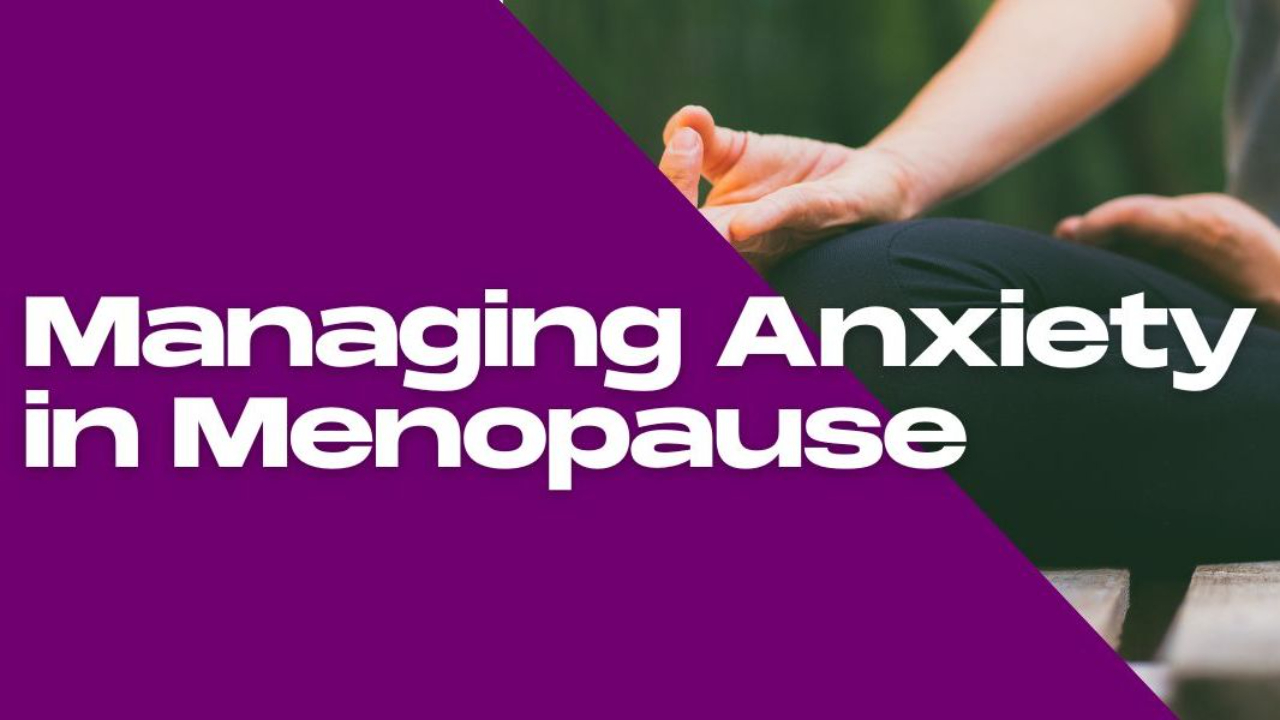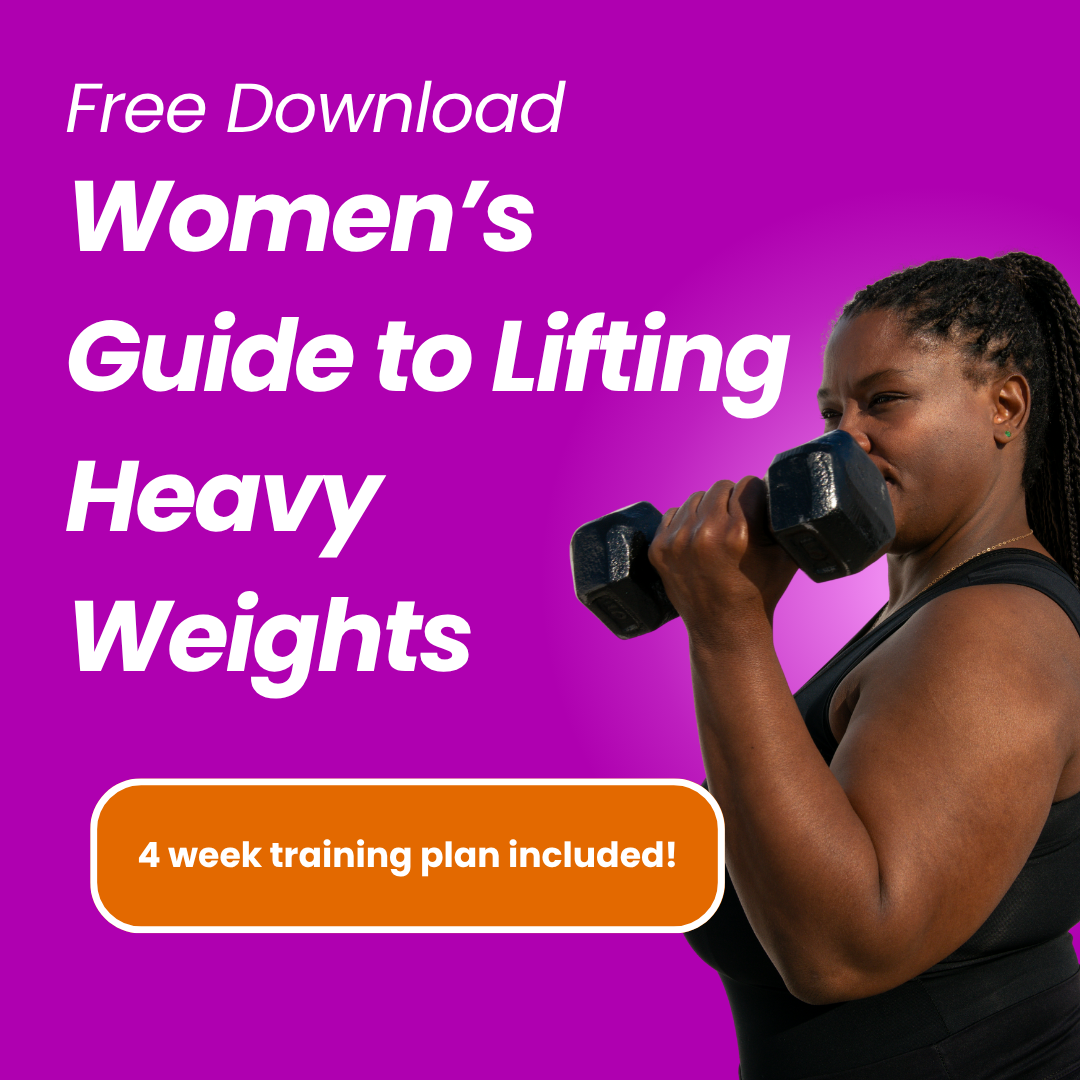
Managing Anxiety in Menopause
Aug 02, 2023It’s not your imagination. Menopausal anxiety is a thing.
By Selene Yeager
It started in the middle of the night, generally around 3 a.m. I’d wake with a jolt, heart racing, my mind swirling with worries about my family and the future. Sometimes I’d be soaking wet, rivulets of sweat trickling down the channel along my spine. I was 46 and had no idea what the hell was going on. I just thought I was coming undone.
“I’m okay. It’s okay. I’m okay. It’s okay…” I’d talk myself down, sometimes also counting backward from 50 to quiet the storm.
Before too long, I’d find myself randomly freezing on technical mountain bike trails I’d gleefully ridden dozens of times over the years. Sometimes driving on the highway would freak me out. My obsessive tendencies would go into overdrive, as I would check that I’d locked the front door literally half a dozen times in a row.
It would be years–when I started writing Next Level with Dr. Stacy Sims and launched the Hit Play Not Pause podcast in 2020 to be specific–until I realized it was menopause related.
That’s something last week’s Hit Play Not Pause guest, Dr. Clare Spencer, Clinical Director of My Menopause Centre sees all the time. “Women will say they just thought they couldn’t cope, or they were getting stressed, or they just started dropping balls. They don’t realize it’s menopause. They blame themselves and think it’s their fault. It’s not your fault,” she told me. (She also wrote a great post on menopause-related anxiety for her website; you can check that out here.)
Blame the Messengers
If you want to point a finger, direct it at your hormonal fluctuations, she explained. Estrogen plays an important role in our brains and to help orchestrate our neurotransmitters (aka chemical messengers) like serotonin (known for well-being), dopamine (known for pleasure), GABA (known for calming), and others that have a profound effect on our moods. Before the menopause transition, your ovaries rhythmically produce estrogen, which rises and falls along with its sister hormone progesterone. When we start the menopause transition, estrogen can fluctuate much more erratically from high to low, with more pronounced peaks and valleys.
“The massive fluctuations can trigger anxiety,” Spencer explained. “The drop in estrogen itself can trigger anxiety. Some women will also experience depression.”
Cortisol may also play a role, explains Spencer. “As estrogen levels drop, cortisol, which is released at times of stress, can rise, and that keeps your body in a bit of a heightened state of excitement or anticipation, making you feel a bit edgy.”
Research shows about half of women suffer from “unspecific anxiety” (meaning you don’t have a specific reason to be freaking out inside) during the menopause transition.
Myriad factors come into play. If you’ve suffered from anxiety or depression in the past and/or if you’re typically an anxious person, you may be more susceptible. If you have a history of PMS-related mood swings and/or postnatal depression, those are indicators that your brain may be more sensitive to hormone changes and hormone levels.
How to Calm the Storm
I found relief through mindfulness, heavy lifting, and adaptogens. These days, I sleep through the night like a stone at the bottom of the sea and it’s delightful. I’m calmer during the day, too (though I still have my moments, it’s worlds better.) Spencer assured me that others can find relief as well and there are myriad avenues, so if one doesn’t work, try another.
The First Step is Understanding
Our brains do not like medical mysteries. So if we’re suddenly, mysteriously getting freaked out at 4 a.m., we’re going to be even more freaked out because we don’t understand what is happening. Once you can pin what you’re feeling to an underlying cause, you can at least alleviate that extra layer of anxiety. You can also start taking steps to find a solution.
Menopausal Hormone Therapy Can Dial it Down
The research is a bit mixed, but menopausal hormone therapy (MHT, also referred to as HRT) may reduce anxiety symptoms. “The goal of HRT is to give you back some of the estrogen to fill in some of those deep troughs,” says Spencer. “And there’s good evidence that it can really help the psychological symptoms of menopause, but it’s not a magic bullet. Some women feel amazing. For others, it just takes the edge off, but there are still ups and downs.”
Progesterone, which you need along with estrogen if you have a uterus, can be a bit trickier. Some women find progesterone really helpful, particularly for anxiety, because the breakdown products of progesterone bind to your GABA receptors and help with anxiety as well as sleep, says Spencer. That said, some women are super sensitive to progesterone, she says. “Some women will say. ‘It makes me feel like a dark cloud has descended over my head.’”
So, it’s important to work with your healthcare provider and let them know how you’re feeling. “You rarely get hormone therapy right the first time,” Spencer says. “You may need to look at different doses, different routes of taking it, different types of hormones. Going back to your doctor is important to get it right.”
Also note, testing hormone levels is not useful here. “We’re not looking at absolute hormone levels here,” says Spencer. “You could have 10 women with the same hormone level and you could get 10 different reactions. Some women’s brains are just more sensitive to the change and drop in hormone levels.”
Speaking of changes and drops, your hormones are changing day to day, even hour by hour. So it’s not that useful to measure levels during perimenopause when your hormones can be fluctuating erratically, she says. “What’s more useful is to track your symptoms and see how they’re changing in response to treatment.”
Mindfulness Practices Make a Difference
We talk about mindfulness and cognitive behavioral therapy (CBT) a lot here–because they work. CBT is considered a first-line treatment for anxiety disorders.
Mindfulness can significantly lower stress, not just in the moment, but also can have long-term stress benefits when practiced daily, according to a study on more than 200 women and men (mostly women) participating in a nine-month mindfulness.
The proof was in the participants' hair. The concentration of cortisol in hair is a measure of exposure to prolonged stress. The longer the stress lasts, the longer an increased concentration of cortisol circulates around the body, the more it accumulates in our hair. On average, hair grows one centimeter per month. The researchers analyzed the amount of cortisol in the first three centimeters of hair, starting at the scalp, every three months over the course of the nine-month study.
After just six months of training, the amount of cortisol in the participants’ hair had decreased significantly, on average by 25 percent.
Traditional Antidepressants Can Help
Selective serotonin reuptake inhibitors (SSRIs) and/or serotonin and norepinephrine reuptake inhibitors (SNRIs) can help manage anxiety. SSRIs and SNRIs can also provide mild to moderate relief from night sweats and hot flashes.
“In terms of using HRT versus SSRI or SNRI, it can be difficult to know which way to go,” Spencer says. “I usually talk about HRT first because there is evidence that HRT probably works better if your symptoms are related to the menopause transition. But if you have symptoms of clinical anxiety or clinical depression, you might need an SSRI or SNRI, or in a small percentage of women, both, to get back to where you need to be.”
These medications can come with side effects (notably the loss of sexual response and libido with SSRIs), so, as with hormone therapy, it’s important to work with your doctor to find the right therapy and dose that works for you.
Women Also Have Success with Alternative Therapies
Spencer couldn’t really speak to alternative treatments like adaptogens (botanicals that increase your stress resilience), but many in our community (including myself) have had success with adaptogens like ashwagandha.
Though there is not the same level of hard research on herbal therapies as there is on pharmaceutical therapies, they are not without scientific evidence, and a 2023 narrative review on ashwagandha reports that studies suggest the adaptogen may help in the treatment of sleep disorders, improve stress resilience, and reduce anxiety. (Note: Evidence also suggests it can be helpful for hypothyroidism, so you shouldn’t take it if you’re on thyroid medication.)
With any alternative therapies, it’s important to do your research to know what you’re getting, as the industry is poorly regulated and studies have found that there’s a lot of garbage on the market. Labdoor.com and ConsumerLab.com are excellent resources for finding reputable, tested supplement brands.
Lift Weights for Stress Relief!
Anecdotally, women will tell you that they get great stress relief from hitting the weights, especially lifting some heavy sh*t. There’s also research to support that.
A paper published in Scientific Reports found that regular weight training substantially reduces anxiety. The study involved younger adults who were in good mental health (i.e. they didn’t have specific anxiety disorders), but the results were impressive. Participants who lifted twice a week for eight weeks scored about 20 percent better on tests of anxiety than their peers who didn’t follow the weight training plan. I know it sure worked for me. (Plus, you get stronger and put more muscle in your menopausal health 401K!)
Get Feisty 40+ in Your Inbox
We hate SPAM. We will never sell your information, for any reason or send you emails that suck!



